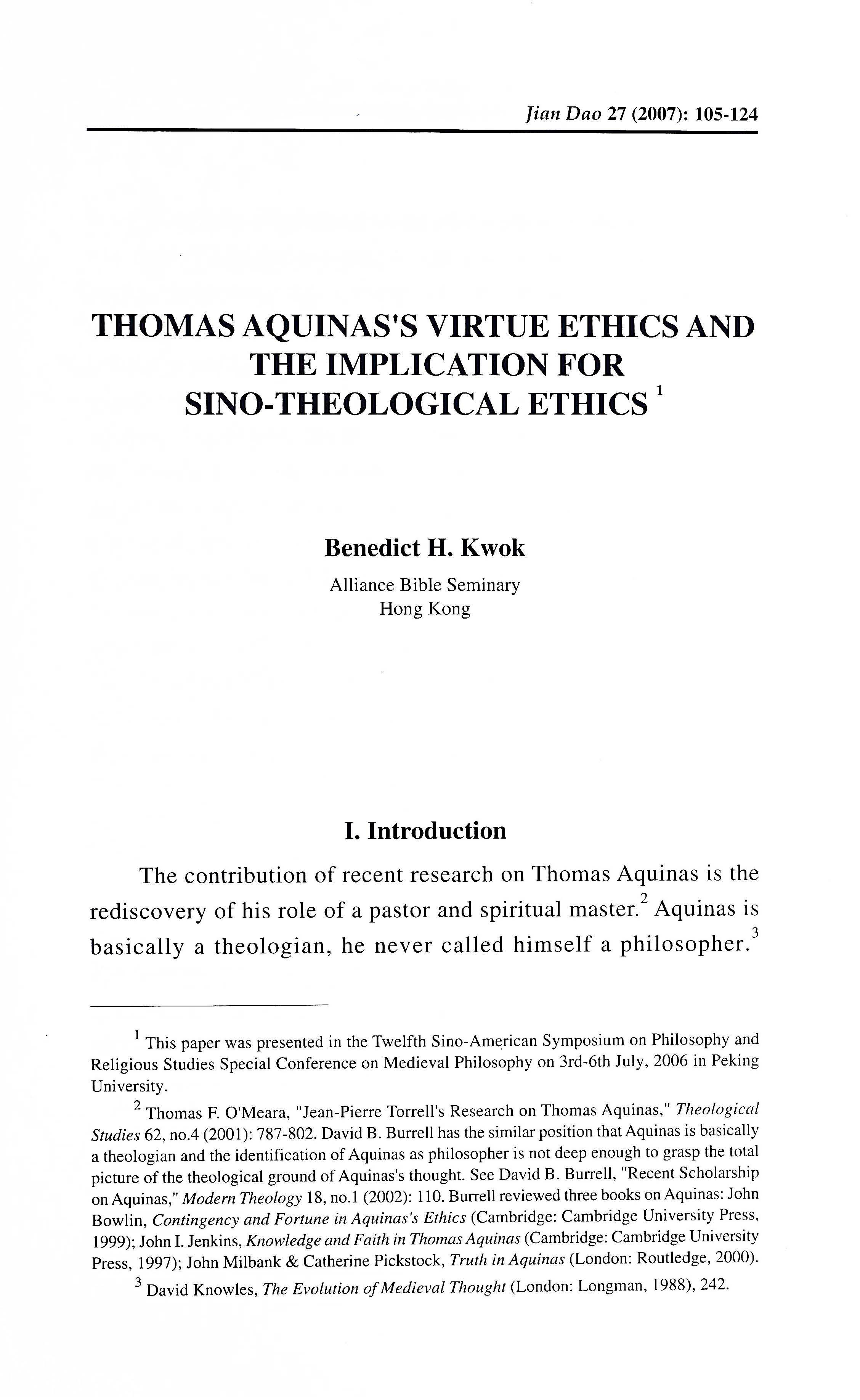Thomas Aquinas's Virtue Ethics And The Implication For Sino-Theological Ethics(多瑪斯·亞奎那的美德倫理對漢語神學倫理的意義) /郭鴻標
撮要
本篇論文主旨是從神學角度證釋亞奎那的美德倫理。亞奎那認為生命的目的是朝向上帝;但是許多人誤解亞奎那只根據人類理性論證上帝存在的觀點,他們忽視了亞奎那哲學中超自然部分。對亞奎那來說,恩典是將成長的美德(acquired virtue)及灌入的美德(infused virtue)整合的根源。亞奎那從真、善、美的角度演繹基督教信仰,他不單考慮自然秩序及功利的角色,同時關注情感(passion)及意慾(appetite)的影響。本篇論文要論證靈修學及亞奎那美德倫理的基礎。上帝的美和榮耀吸引人參與及分享上帝的生命。在這個基礎上,本篇論文的貢獻在於與那些視亞奎那只是哲學家的漢語神學進行對話。
ABSTRACT
The aim of this paper is to interpret Aquinas’s virtue ethics from a theological perspective. Aquinas understands the goal of life as an orientation toward God, however, it is a common misunderstanding that his proof of the existence of God is based only on human reason. The fact is one may neglect the supernatural ground of Aquinas’s philosophy. As for Aquinas, grace is the source that integrates acquired and infused virtues. Aquinas interprets Christian faith from the perspectives of truth, good and beauty. He considers not only the role of natural order, utility, but also the passion and the appetite. This paper will argue that Spirituality is the basis for Aquinas’s virtue ethics. The glory and beauty of God attracts human beings to participate and share the life of God. From that understanding, this paper will contribute to the dialogue with the Sino- theologians who regard Aquinas as only a philosopher.
原載於《建道學刊》27期(2007年1月),頁105-124。
作者簡介
郭鴻標
神學系教授
副院長 (行政)
Latest Articles
新手牧者研究計劃(三):新手牧者的身心靈狀態 / 盧慧儀
2025 年 11 月 19 日
個體與關係:滕近輝思想中「深化」的靈性觀 / 倪步曉
2025 年 11 月 18 日
香港九龍塘基督教中華宣道會之起源和發展史/陳智衡
2025 年 10 月 20 日
Highlights
[電子書]困境與抉擇:「建道研究中心30週年誌慶」跨學科研討會論文集/廖炳堂、倪步曉主編
2025 年 1 月 2 日
從梧州到長洲:建道神學院125年的挑戰與恩典 / 陳智衡
2023 年 10 月 1 日
微小教會的見證/高銘謙
2023 年 6 月 1 日








